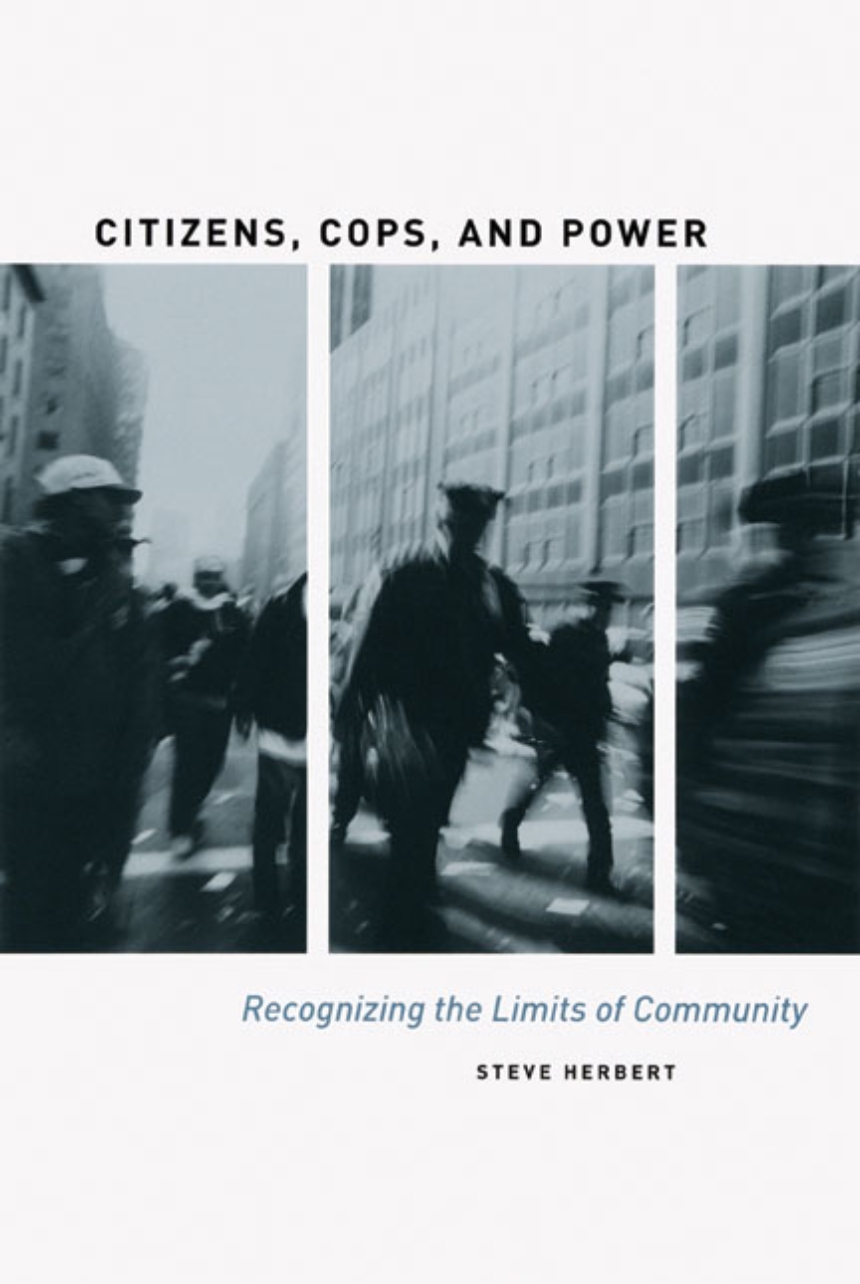Citizens, Cops, and Power
Recognizing the Limits of Community
Politicians, citizens, and police agencies have long embraced community policing, hoping to reduce crime and disorder by strengthening the ties between urban residents and the officers entrusted with their protection.
That strategy seems to make sense, but in Citizens, Cops, and Power, Steve Herbert reveals the reasons why it rarely, if ever, works. Drawing on data he collected in diverse Seattle neighborhoods from interviews with residents, observation of police officers, and attendance at community-police meetings, Herbert identifies the many obstacles that make effective collaboration between city dwellers and the police so unlikely to succeed. At the same time, he shows that residents’ pragmatic ideas about the role of community differ dramatically from those held by social theorists.
Surprising and provocative, Citizens, Cops, and Power provides a critical perspective not only on the future of community policing, but on the nature of state-society relations as well.
That strategy seems to make sense, but in Citizens, Cops, and Power, Steve Herbert reveals the reasons why it rarely, if ever, works. Drawing on data he collected in diverse Seattle neighborhoods from interviews with residents, observation of police officers, and attendance at community-police meetings, Herbert identifies the many obstacles that make effective collaboration between city dwellers and the police so unlikely to succeed. At the same time, he shows that residents’ pragmatic ideas about the role of community differ dramatically from those held by social theorists.
Surprising and provocative, Citizens, Cops, and Power provides a critical perspective not only on the future of community policing, but on the nature of state-society relations as well.
168 pages | 6 x 9 | © 2006
Geography: Cultural and Historical Geography, Urban Geography
Law and Legal Studies: Law and Society
Sociology: Criminology, Delinquency, Social Control
Reviews
Table of Contents
Acknowledgments
Introduction
1. The Terrain of Community
2. The Political Status of Community
3. Elusive Legitimacy: Subservient, Separate, or Generative?
4. "Don’t Drink the Kool-Aid": On the Resistance to Community Policing
5. "It Is so Difficult": The Complicated Pathways of Police-Community Relations
6. The Unbearable Lightness of Community
Notes
Index
Introduction
1. The Terrain of Community
2. The Political Status of Community
3. Elusive Legitimacy: Subservient, Separate, or Generative?
4. "Don’t Drink the Kool-Aid": On the Resistance to Community Policing
5. "It Is so Difficult": The Complicated Pathways of Police-Community Relations
6. The Unbearable Lightness of Community
Notes
Index
